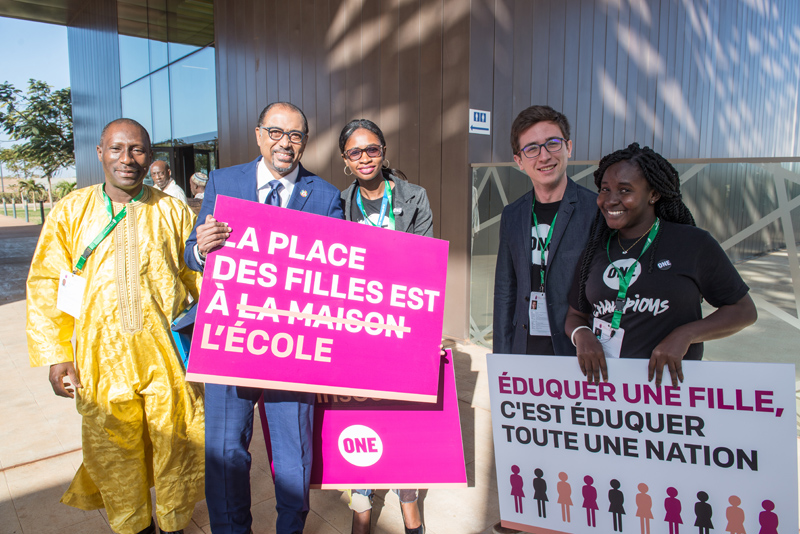During the Global Partnership for Education meeting on 2 February, hosted by Senegal and France, UNAIDS Executive Director Michel Sidibé discussed the importance of education and health. “Integrating education and health is key for our success in controlling the epidemic among young people. Without effective, quality and sustainable health and education systems we are failing young people”, Mr Sidibé said. Credit: UNAIDS/B. Deméocq.

The First Lady of Senegal, Marieme Faye Sall, and the First Lady of France, Brigitte Macron, inaugurate a cardio-paediatric centre that provides surgical treatment for children affected by cardiologic diseases. The centre, funded by the Cuomo Foundation in Monaco, supports women and children in Senegal. Credit: UNAIDS.

Preventing mother-to-child transmission of HIV is crucial, as is community involvement, stressed Mr Sidibé during his meeting with Ms Sall. The western and central Africa region lags behind in access to treatment and prevention, which is why UNAIDS and partners launched a western and central Africa catch-up plan. Credit: UNAIDS/B. Deméocq.
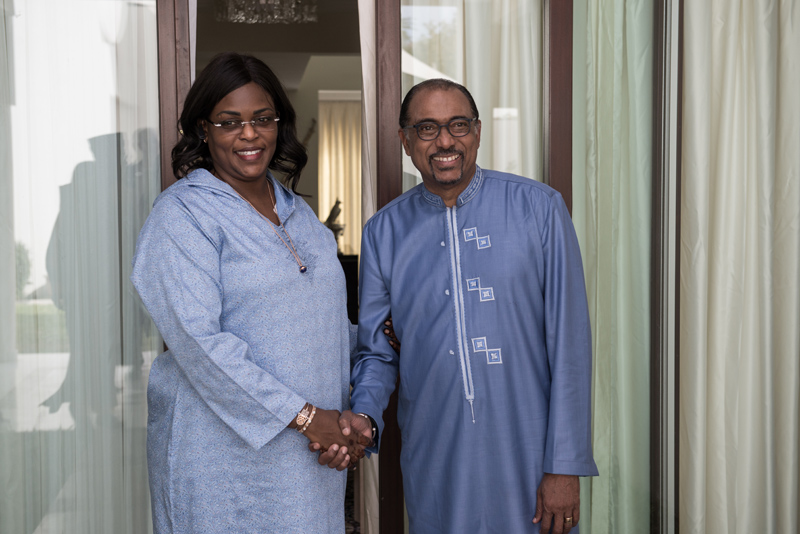
Mr Sidibé also met with the Minister of Health and Social Action of Senegal, Abdoulaye Diouf Sarr, stressing that no matter who you are or where you are from, everyone has the right to health, the right to an education, the right to equal opportunities and the right to thrive. Credit: UNAIDS/B. Deméocq.
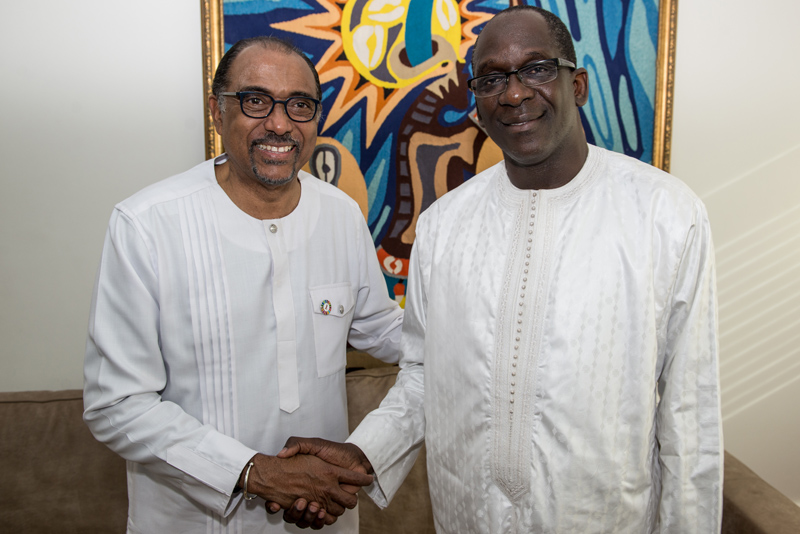
The Secretary General of the Organisation Internationale de la Francophonie, Michaëlle Jean, will raise the issue of counterfeit medicines at the upcoming World Health Assembly in May. Credit: UNAIDS/B. Deméocq.
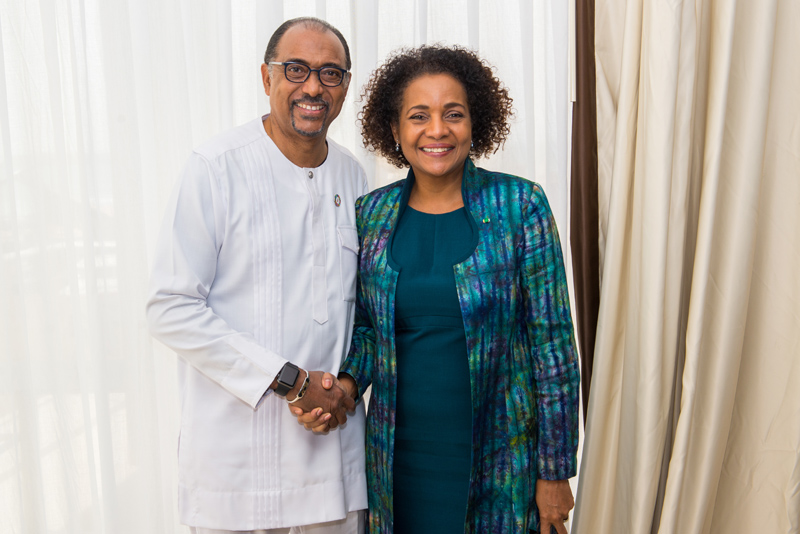
Minister of International Development of Norway, Nikolai Astrup, and Mr Sidibé met on the sidelines of the meeting. Credit: UNAIDS/B. Deméocq.
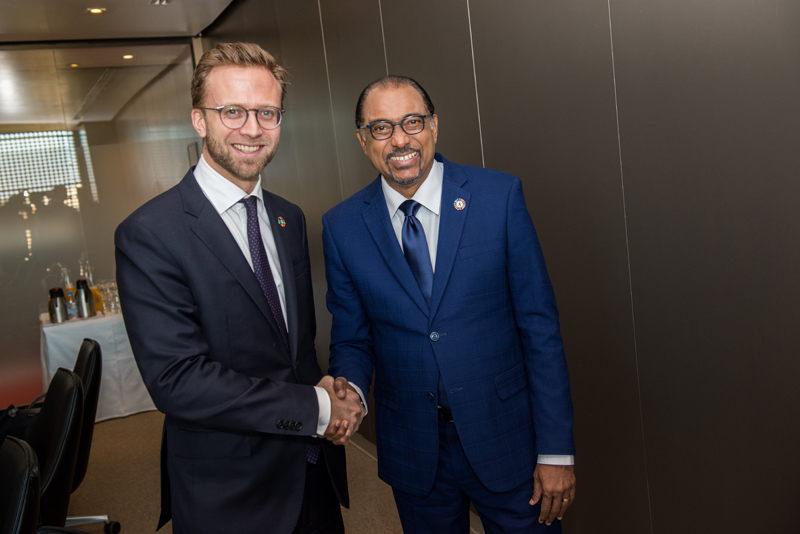
Mr Sidibé, along with the Ambassador of Luxembourg, Nicole Bintner. Luxembourg has been an active participant and donor in the western and central Africa catch-up plan. Credit: UNAIDS/B. Deméocq.
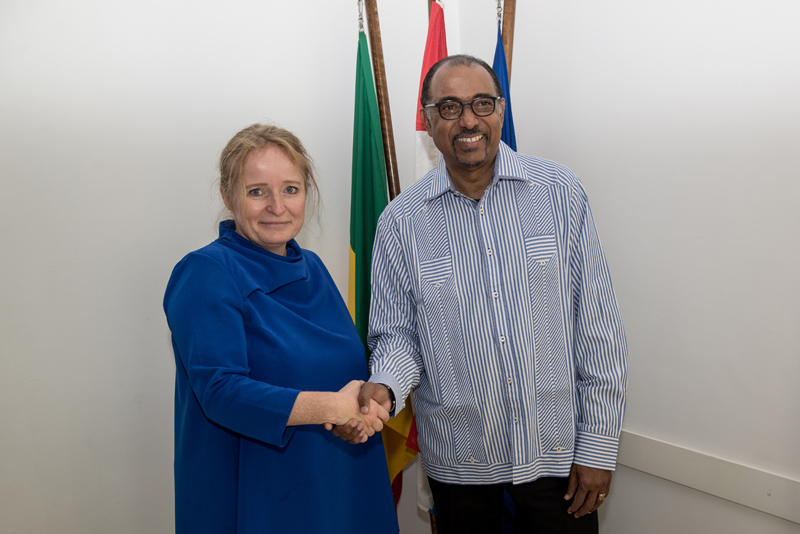
Good health enables a girl to thrive, to grow, to think, to explore and to contribute to her community. Knowledge of how to stay healthy and access to quality health services enable her to prevent illness, to eat well, to manage her sexual health, to have healthy babies when and if she chooses to and to nurture her own well-being. Education and health are two of the most transformative elements of a girl’s life. Credit: UNAIDS/B. Deméocq.
